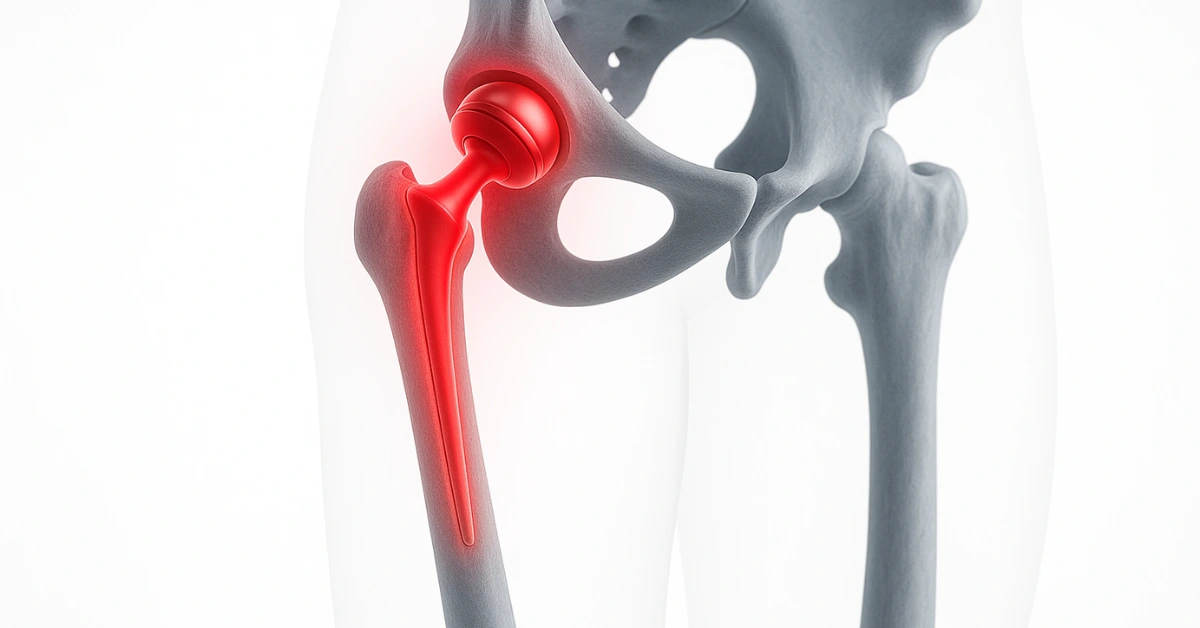
Safety Rate
Revision hip replacement is a corrective surgery performed when a previous hip implant wears out, loosens, or causes complications. The procedure involves removing the old implant, repairing damaged bone or tissue, and placing a new prosthetic joint. It is more complex than primary hip replacement but is essential for restoring stability and mobility. With Revision Hip Replacement surgery in Chennai, patients benefit from advanced techniques that reduce pain and improve outcomes. This approach helps individuals regain movement, comfort, and a better quality of life.
Hip revision surgery is usually needed when a hip replacement no longer functions properly.
This surgery helps manage both mechanical and biological complications.
While most hip replacements last 15–20 years, some require revision earlier due to trauma, wear, or complications. Revision hip replacement is less common than primary surgery but is increasingly performed as more people live longer with artificial hips. The need for revision typically increases after 10–15 years of an initial replacement.
Preparation includes medical and lifestyle adjustments.
Patients are advised to make changes at home to support safe recovery.
The surgeon removes the old implant and any damaged bone or tissue. New components are then placed to restore the hip’s function. Depending on the complexity, bone grafts or special implants may be used. The procedure is carried out under general or spinal anesthesia, with close monitoring throughout.
On average, the surgery takes two to four hours. Complex cases involving infection or severe bone loss may take longer, as additional reconstruction is often needed.
Most patients require a hospital stay of several days. Physiotherapy begins soon after surgery to restore movement. Pain management, wound care, and gradual walking exercises are key steps. Assistive devices such as crutches or walkers may be required for several weeks.
Recovery varies, but most patients regain mobility in three to six months. Full healing may take up to a year depending on bone quality, age, and overall health. Commitment to physiotherapy plays a major role in long-term success.
Knee replacement surgery can greatly enhance the quality of life for individuals dealing with severe joint damage, persistent pain, and restricted movement. With knee replacement surgery in Chennai, patients have access to advanced surgical methods and well-planned rehabilitation programs that promote faster and safer recovery. Improved joint function allows individuals to walk comfortably and return to their normal daily activities with confidence. For patients requiring corrective procedures, revision hip replacement surgery in Chennai offers specialized solutions to address implant wear, loosening, or complications from previous surgeries. Choosing an experienced expert like Dr. Vijay Sohanlal ensures accuracy, safety, and reliable long-term results through comprehensive and personalized care.
The “90% rule” refers to a common post-surgery precaution where patients are advised not to bend their hip beyond 90 degrees during early recovery. This helps prevent dislocation and protects the new joint while it heals. Following proper rehabilitation guidelines after revision hip replacement surgery in Chennai ensures safer recovery and better long-term stability.
There is no fixed limit to the number of hip revision surgeries a person can undergo. However, each revision becomes more complex due to reduced bone stock and scar tissue formation. The decision depends on overall health, bone quality, and implant condition. An experienced specialist performing revision hip replacement surgery in Chennai can carefully assess and plan the most suitable approach.
Surgical risk generally increases in patients above 75–80 years, especially if they have underlying conditions such as heart disease, diabetes, or lung disorders. However, age alone does not determine risk; overall health and medical fitness are more important factors. Proper evaluation before revision hip replacement surgery in Chennai helps minimize complications and ensure patient safety.
Hip replacement is generally considered a safe and commonly performed procedure with high success rates. However, like any major surgery, it carries risks such as infection, blood clots, or dislocation. Advanced surgical techniques and careful monitoring during revision hip replacement surgery in Chennai significantly reduce these risks.
The most commonly reported issues after hip replacement include temporary pain, stiffness, swelling, or mild leg length differences. In rare cases, dislocation or infection may occur. Early physiotherapy and regular follow-up after revision hip replacement surgery in Chennai help manage these concerns effectively and support long-term joint function.
Take the first step towards pain-free living. Book your consultation today and discover personalized treatment options tailored to your needs.